General
Jehovah’s Witnesses Open Historical Museum in Edo
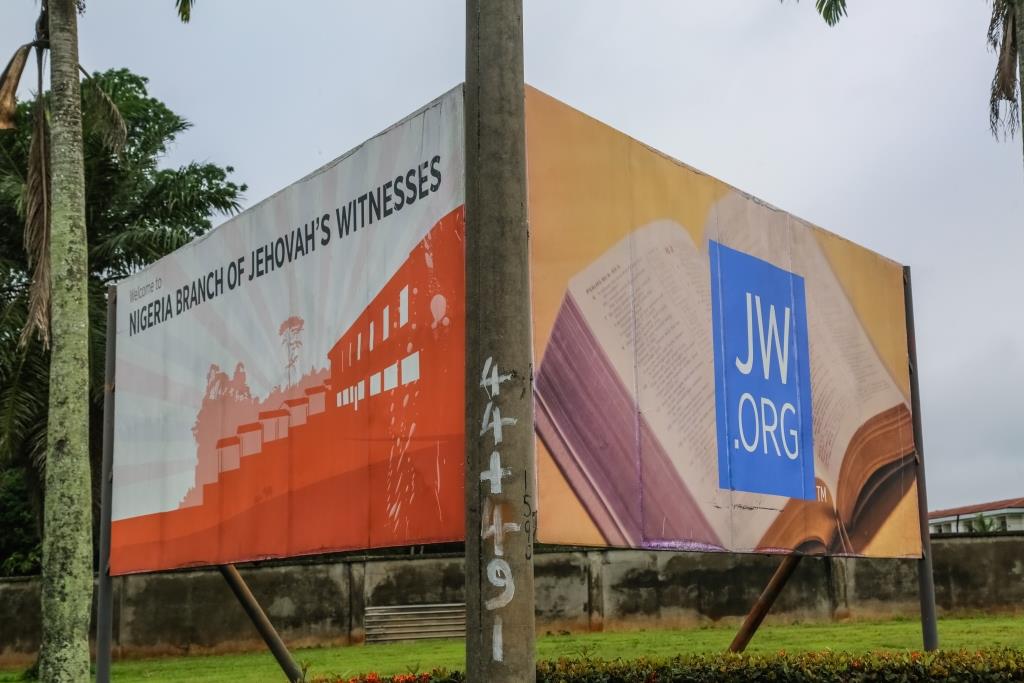
By Modupe Gbadeyanka
Jehovah’s Witnesses in Nigeria have opened a historical museum in Igieduma Village, Edo State, documenting activities of the religious group in the country for the past 100 years.
The facility was inaugurated recently under an initiative called 100 Years of Courage, highlighting how some people came together to establish the sect in Nigeria in 1921.
Nigeria is a diverse country with a rich cultural and historical heritage. The people making up the country have various social, religious and cultural experiences dating back several centuries.
The advent of Christianity, with its increasingly various denominations, ushered in a new era in the history of the people making up Nigeria. Jehovah’s Witnesses make up a significant part of the Christian populace of Nigeria.
The museum depicts the various influence of non-witness actors that impacted the spread of their activities, both positive and negative.
Early Days
The history of the Witnesses in Nigeria began with the arrival of Claude Brown, also known as Bible Brown, in 1921.
The Museum shows that the Witnesses first established their branch office in Nigeria in the same year and started their evangelical ministry. From the small beginning, they set about reaching the major towns and hinterlands of Nigeria, the missionaries converting local people who in turn helped to spread the Bible message further afield. With limited transportation and mass communication methods available in the early 20’s and 30’s, the museum depicts how the Witnesses used a variety of initiatives, including the sound car, megaphones and phonographs, to spread the message.
Challenges
The museum further documents how the spread of the word of God by Jehovah’s Witnesses in Nigeria had been spiced with various challenges. These included denial of physical access to areas they desired to preach in by local chiefs and religious priests, beatings of new converts by relatives who misunderstood the Witnesses’ beliefs, arson, and in some extreme cases, murder.
The Nigerian civil war brought a new dimension to the challenges faced by Jehovah’s Witnesses in Nigeria. Pictures and other artefacts in the museum show that the Witnesses in the former Biafran territory were cut off from their Nigerian brothers. With the resulting limited contact, the flow of Bibles and Bible-based publications became strained.
However, in remarkable demonstrations of faith, the Witnesses on both sides risked their lives and freedom to cross the lines to deliver publications and directions to those in the war zone. In heart-touching personal stories, the museum captures the experiences of specific witnesses who took part in the risky undertaking of crossing the war zones to reach their brothers and sisters on the other side.
A cocktail of ingenuity and faith was often on display. Sadly, some Witnesses were killed by soldiers and others for refusing to fight in the war in obedience to God’s command in the Bible – You must not kill (EXODUS 20:13). In interesting twists, some of the soldiers who fought in the war, including some who encountered or even killed Jehovah’s Witnesses for refusing to join the war, became Jehovah’s Witnesses themselves after the war, some becoming elders and missionaries.
In all, the civil war and other challenges did not appear to break the integrity of the Witnesses who continued preaching all through the war and even increased in number, as statistics available at the museum show.
Conventions
The museum featured some of the major milestones in the history of Jehovah’s Witnesses in Nigeria – their conventions or large gatherings. Each year, Jehovah’s Witnesses invite their neighbours, friends, and family to join them for these large gatherings. From Lagos to Port Harcourt, the museum chronicled the district and international convention history of the witnesses. The international conventions involved invited foreign guests and speakers and simultaneous translation into multiple Nigerian languages. The baptism of new converts was a constant feature of these conventions. These large gatherings strengthened the unity of the witnesses and gave immeasurable impetus to their work in the country.
An Interactive Museum
The museum is made to meet modern standards and expectations of information consumption. The museum has audio-video media which tourists can play or view through a special wifi-bluetooth connection and installed TV screens. These help visitors to get additional information about the historical event or character on display but also to relive the event. Tourists are encouraged to come with their phones, tablets or other handheld devices with either Bluetooth or wired headsets to have a more interactive experience.
Tourists React
The first set of tourists to the museum commended the group for the project.
Seun Faluyi, a tourist, said, “It is phenomenal to see how much opposition Jehovah’s Witnesses faced in the early years. But they were not deterred. They were brave; they were courageous. Celine, a teenage tourist, said: I like how interactive it is. Sometimes you forget how much history you have… According to Ayinola Olusoyan, I have been around Jehovah’s Witnesses for some time, although I am not one of them. Today is a great day for me to be here.”
How to book a visit
According to the spokesman of Jehovah’s Witnesses, Olusegun Eroyemi, the public, journalists, tourists, and academics are invited to visit the museum.
The Museum is located at Igieduma village, Uhunmwonde Local Government, Edo State. To book a visit, an individual or group may visit jw.org, click on About Us, select Bethel Tours, and then search for Nigeria on the drop-down menu. Then scroll to Make a Reservation, then click on Create an account to enable them to receive details of the visit reservation by text or email. They would be required to follow the prompts to complete their reservation. The visit is free, with an assigned tour guide.
General
Eyesan Promises Enhanced Transparency, Digital Transformation at NUPRC

By Adedapo Adesanya
The chief executive of the Nigerian Upstream Petroleum Regulatory Commission (NUPRC), Mrs Oritsemeyiwa Eyesan, has promised to enhance transparency and ensure that the NUPRC’s internal communications are fully digital.
Mrs Eyesan said this when the Executive Secretary of the Nigeria Extractive Industries Transparency Initiative (NEITI), Mr Musa Adar, visited the commission’s corporate headquarters in Abuja.
“We have set for ourselves a 60-day programme to digitise our interactions and communications within the commission. I can assure you that once we get to day 60, there will be no paper trail within the Commission. All our transmissions will be electronic, which also means speed is assured. It means we will be able to trace where we have hiccups,” Mr Eyesan said.
The NUPRC boss said digitising processes often leads to better results, like the enforcement of payments of royalties.
“I can tell you without a shadow of doubt that for royalty payments, the default rate was enormous prior to 2025 when the Commission went live on the system. Now, compliance has improved,” Mrs Eyesan said.
The NUPRC boss sought a deepened relationship with NEITI, which will foster transparency, especially amid the 2025 Licensing Round.
In his remarks, the NEITI’s scribe said there was a need for the NUPRC to carry the agency along in its operations as this would not only enhance transparency but also deepen investor confidence.
Mr Adar also urged the commission to be firm on oil companies that run afoul of the Petroleum Industry Act.
Speaking on the Extractive Industries Transparency Initiative, Mr Adar asked that the NUPRC actively participate in the 2026 EITI flagship conference, which will provide the Commission with better insights into the standards that guide EITI implementation.
The NEITI boss also sought support from the Commission in the area of data sharing, which will enhance the operations of the agency.
“We are here to seek understanding, and we must collaborate,” Mr Adar said.
General
Tinubu Tasks Acting IGP Disu to Restore Peace, Strengthen Security Nationwide
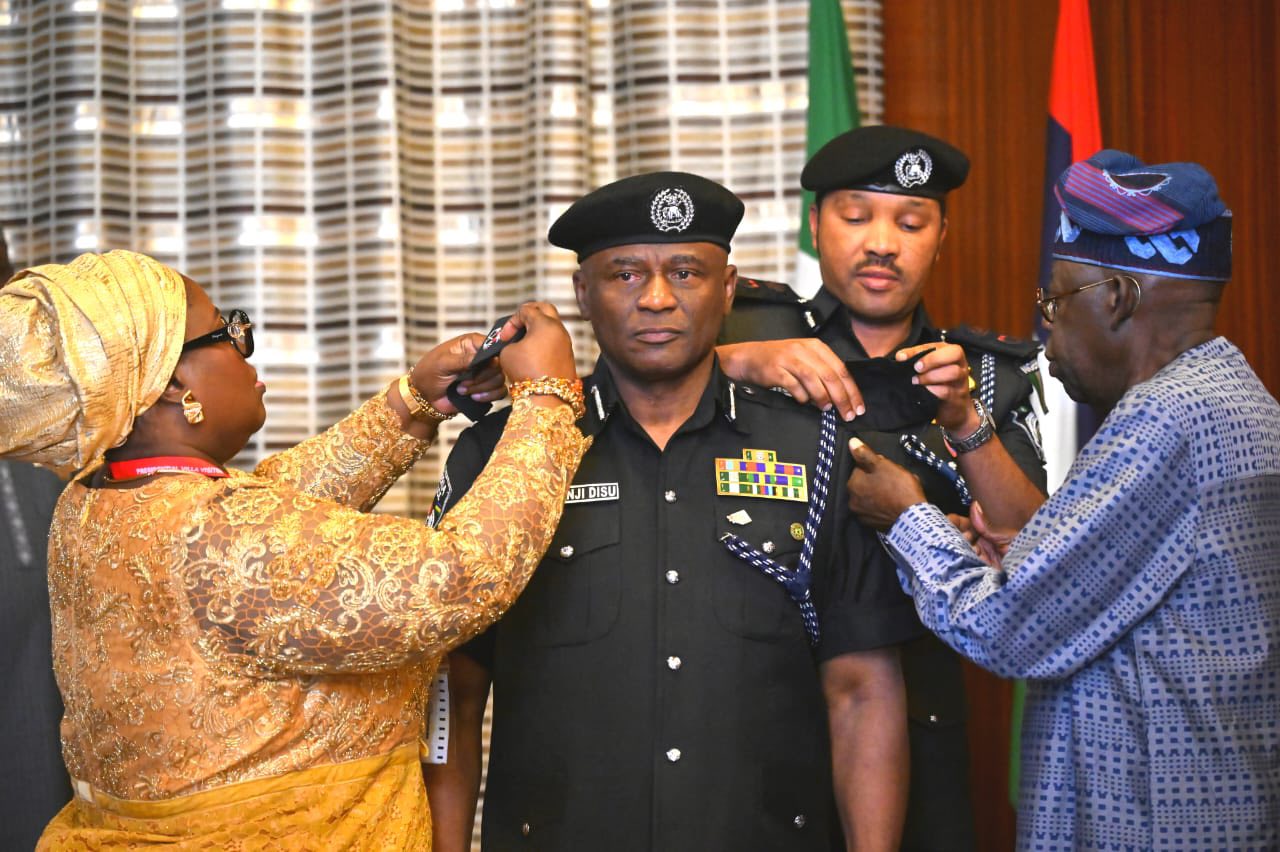
By Modupe Gbadeyanka
The acting Inspector-General of Police (IGP), Mr Tunji Disu, has been charged to do everything within his powers to restore peace and strengthen security across the nation.
This task was given to the new police chief by President Bola Tinubu after being decorated at the State House in Abuja on Wednesday.
Mr Disu was chosen to succeed Mr Kayode Egbetokun on Tuesday. His appointment is expected to be approved by the Nigeria Police Council and confirmed by the Senate next week.
President Tinubu described Mr Disu’s appointment as coming at a critical moment, urging him to rebuild public confidence in the police’s capacity to do their job in collaboration with other security forces.
“I made this decision for you to assume this responsibility. I know your record. I saw the dedication you exhibited while you were in Lagos when I was governor,” the President said.
“Lead firmly but fairly, demand professionalism at every level and ensure that the safety of lives and property remains our highest priority. It’s a daunting challenge. I know you can do it. You have my word, you have my full support,” he added.
Mr Tinubu urged him to advance the security pillars of his administration’s Renewed Hope Agenda. He expressed confidence in the Acting IGP’s discipline, operational experience and leadership capacity.
“Nigeria is challenged with banditry, terrorism and other criminal activities. You will be part of the thinking and innovation to overcome them,” the President said, reaffirming his belief that Nigeria would prevail under a committed leadership.
The President also paid tribute to Mr Egbetokun, who was present with his spouse, saying, “We are a grateful nation. Nigeria appreciates your contribution to maintaining law and order.”
He urged Egbetokun to be ready to offer useful advice to his successor and wished him and his family peace, good health and success in future endeavours, noting,
“You have not succeeded without a good successor. His success will also be part of your legacy.”
Mr Tinubu urged all security stakeholders to work collectively to safeguard lives and property during this critical period.
General
Real Estate Sector Now Safe Haven for Fraudsters—EFCC
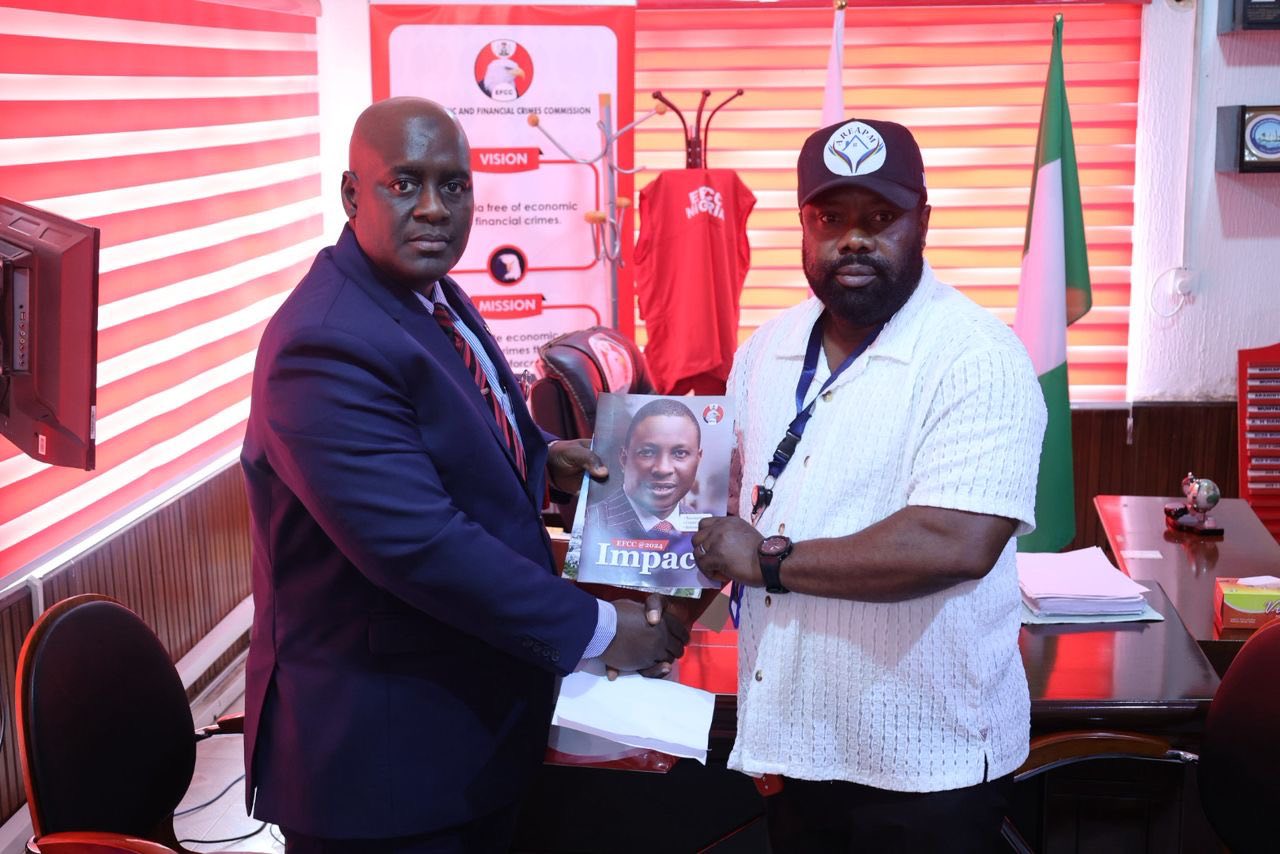
By Modupe Gbadeyanka
The chairman of the Economic and Financial Crimes Commission (EFCC), Mr Ola Olukoyede, has lamented how “people now defraud the government and individuals and invest in real estate.”
He raised this concern when he received the executives of the Association of Real Estate and Property Managers (AREAPM) in Edo State on Wednesday.
The EFCC chief, represented by the acting Zonal Director and Deputy Commander of the Commission, Mr Sa’ad Hanafi Sa’ad, warned real estate managers against money laundering.
“We have noted with grave concern that fraudsters are laundering money and hiding proceeds of crime through real estate and property. People now defraud the government and individuals and invest in real estate,” he stated.
He noted that the agency would continue to discharge its statutory mandate of bringing those who seek to circumvent the system to book.
“As a commission, we recognise the role of Real Estate and Property Managers. Property Managers are designated non-financial businesses and professions.
“So, we expect them to be professionals and uphold the relevant rules and regulations in the discharge of their duties,” he stated, adding that, “The commission will apply the laws when there is a breach of relevant rules and regulations.”
He assured the AREAPM executives of the organisation’s willingness to collaborate with them in dealing with fraud and criminality in the sector.
“We have a unit, the Land and Property Fraud Section, which attends to issues in that regard. So, when you have challenges, you can report to us,” he stated.
In his remarks, the chairman of AREAPM in Edo State, Mr Akpesiri Michael Egbonoje, stated that the essence of the visit was to seek areas of collaboration with the commission and work out ways of combating real estate financial crimes and fraud in the state.
“Part of our strategy is to familiarise ourselves with law enforcement agencies in the state and seek for collaborative relationships. As a body, we cannot do it alone; we need help in the areas of financial crimes.
“We have tried to sanitise the space, but we realised that your agency is at the apex when it comes to dealing with financial crimes.
“We believe that structured collaboration between AREARM and the EFCC will promote financial transparency, investor confidence, and accountability within the real estate sector.”
-

 Feature/OPED6 years ago
Feature/OPED6 years agoDavos was Different this year
-
Travel/Tourism10 years ago
Lagos Seals Western Lodge Hotel In Ikorodu
-

 Showbiz3 years ago
Showbiz3 years agoEstranged Lover Releases Videos of Empress Njamah Bathing
-

 Banking8 years ago
Banking8 years agoSort Codes of GTBank Branches in Nigeria
-

 Economy3 years ago
Economy3 years agoSubsidy Removal: CNG at N130 Per Litre Cheaper Than Petrol—IPMAN
-

 Banking3 years ago
Banking3 years agoSort Codes of UBA Branches in Nigeria
-

 Banking3 years ago
Banking3 years agoFirst Bank Announces Planned Downtime
-

 Sports3 years ago
Sports3 years agoHighest Paid Nigerian Footballer – How Much Do Nigerian Footballers Earn




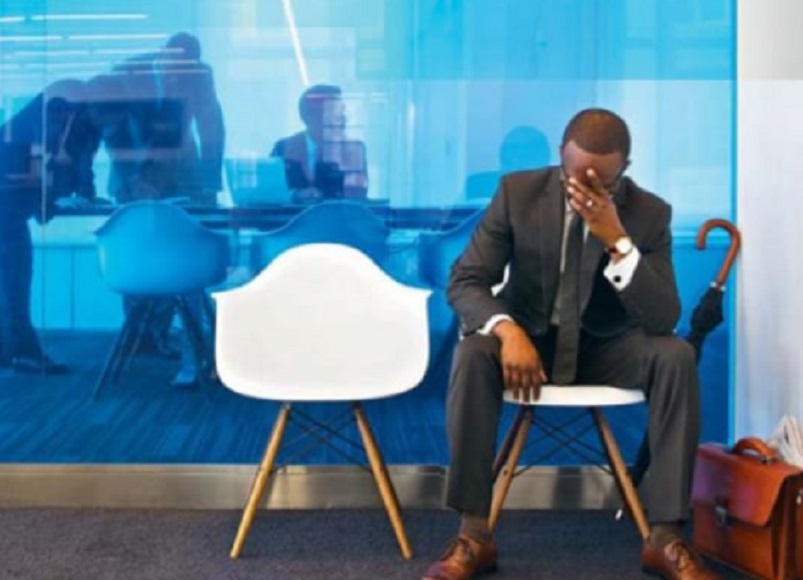
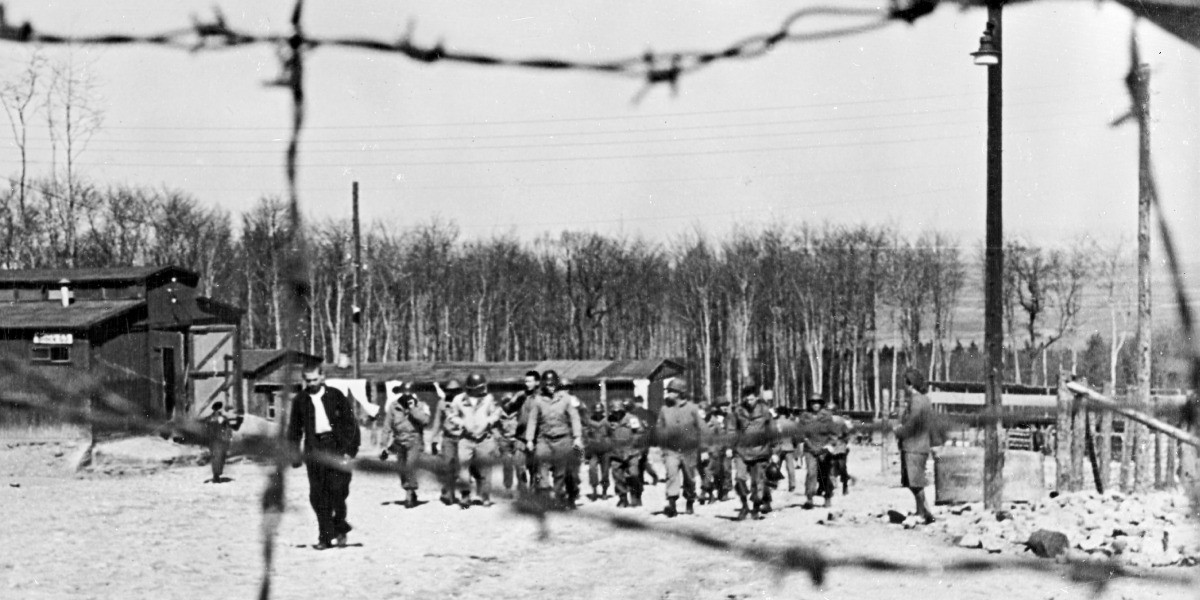
















1 Comment